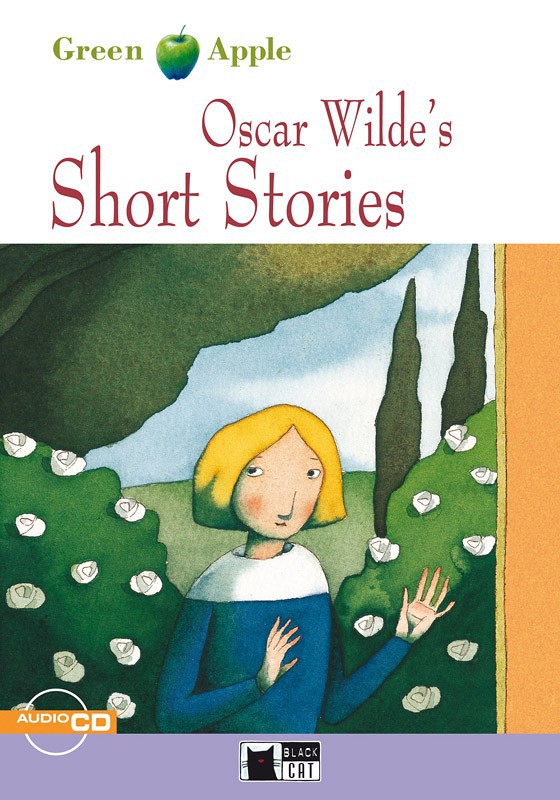
That at least is my idea about friendship, and I am sure I am right. '"There is no good in my going to see little Hans as long as the snow lasts," the Miller used to say to his wife, "for when people are in trouble they should be left alone, and not be bothered by visitors. Jn the winter, also, he was extremely lonely, as the Miller never came to see him then. During the spring, the summer, and the autumn he was very happy, but when the winter came, and he had no fruit or flowers to bring to the market, he suffered a good deal from cold and hunger, and often had to go to bed without any supper but a few dried pears or some hard nuts. 'So little Hans worked away in his garden. 'Sometimes, indeed, the neighbours thought it strange that the rich Miller never gave little Hans anything in return, though he had a hundred sacks of flour stored away in his mill, and six milk cows, and a large stock of woolly sheep but Hans never troubled his head about these things, and nothing gave him greater pleasure than to listen to all the wonderful things the Miller used to say about the unselfishness of true friendship. '"Real friends should have everything in common," the Miller used to say, and little Hans nodded and smiled, and felt very proud of having a friend with such noble ideas. Indeed, so devoted was the rich Miller to little Hans, that he would never go by his garden without leaning over the wall and plucking a large nosegay, or a handful of sweet herbs, or filling his pockets with plums and cherries if it was the fruit season. 'Little Hans had a great many friends, but the most devoted friend of all was big Hugh the Miller. Columbine and Ladysmock, Marjoram and Wild Basil, the Cowslip and the Flower-de-luce, the Daffodil and the Clove-Pink bloomed or blossomed in their proper order as the months went by, one flower taking another flower's place, so that there were always beautiful things to look at, and pleasant odours to smell. There were damask Roses, and yellow Roses, lilac Crocuses, and gold, purple Violets and white. Sweet-william grew there, and Gilly-flowers, and Shepherds'-purses, and Fair-maids of France. In all the country-side there was no garden so lovely as his. He lived in a tiny cottage all by himself, and every day he worked in his garden. 'No,' answered the Linnet, 'I don't think he was distinguished at all, except for his kind heart, and his funny round good-humoured face. 'Was he very distinguished?' asked the Water-rat. 'Once upon a time,' said the Linnet, 'there was an honest little fellow named Hans.' 'It is applicable to you,' answered the Linnet and he flew down, and alighting upon the bank, he told the story of The Devoted Friend. If so, I will listen to it, for I am extremely fond of fiction.' 'Is the story about me?' asked the Water-rat. 'Let me tell you a story on the subject,' said the Linnet. 'I don't understand you,' answered the Water-rat. 'And what would you do in return?' said the little bird, swinging upon a silver spray, and flapping his tiny wings. 'I should expect my devoted friend to be devoted to me, of course.'

'What a silly question!' cried the Water-rat. 'Yes, that is just what I want to know,' said the Duck, and she swam away to the end of the pond, and stood upon her head, in order to give her children a good example. 'And what, pray, is your idea of the duties of a devoted friend?' asked a Green Linnet, who was sitting in a willow-tree hard by, and had overheard the conversation. Indeed, I know of nothing in the world that is either nobler or rarer than a devoted friendship.' Love is all very well in its way, but friendship is much higher. In fact, I have never been married, and I never intend to be. 'Ah! I know nothing about the feelings of parents,' said the Water-rat 'I am not a family man. 'Nothing of the kind,' answered the Duck, 'every one must make a beginning, and parents cannot be too patient.' 'What disobedient children!' cried the old Water-rat 'they really deserve to be drowned.' They were so young that they did not know what an advantage it is to be in society at all. But the little ducks paid no attention to her.


'You will never be in the best society unless you can stand on your heads,' she kept saying to them and every now and then she showed them how it was done.
#SHORT STORIES BY OSCAR WILDE HOW TO#
The little ducks were swimming about in the pond, looking just like a lot of yellow canaries, and their mother, who was pure white with real red legs, was trying to teach them how to stand on their heads in the water. He had bright beady eyes and stiff grey whiskers, and his tail was like a long bit of black india-rubber. One morning the old Water-rat put his head out of his hole. Note: Oscar Wilde intended this story to be read to children


 0 kommentar(er)
0 kommentar(er)
